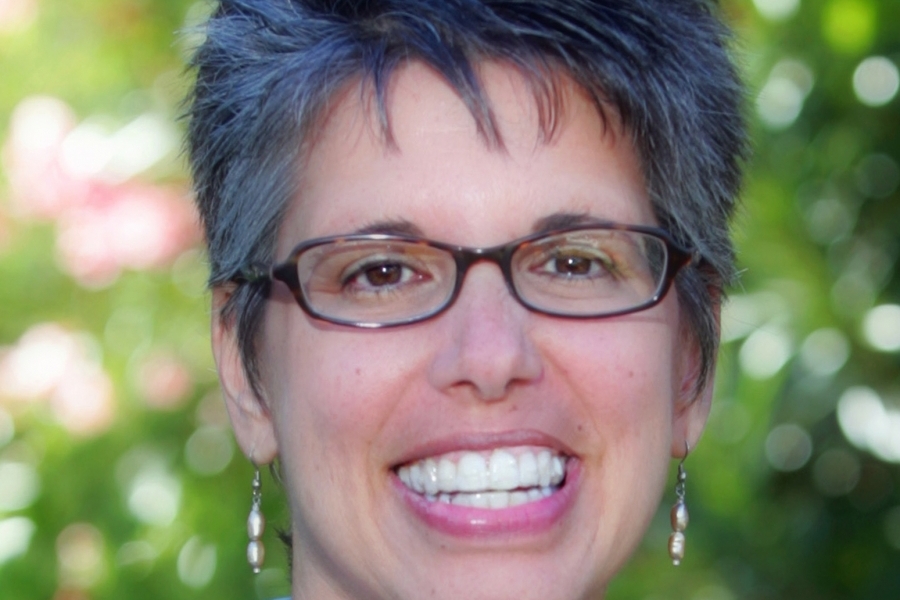Delaware Valley University announced Feb. 18 that its first female president will take the reins in July.
Dr. Maria Gallo, the 13th president of the Bucks County institution, is also the first out lesbian to helm it.
“It’s a historic moment,” Gallo, who has a background in agricultural science, told PGN. “Being a woman in science, there were a lot of firsts for me. I think it’s important because you’re a role model. It allows others to see that it’s a possibility for them too.”
Gallo replaces Dr. Joseph S. Brosnan. He started in 2007 and will retire at the end of the academic year.
Susan B. Ward, M.D. ’80, chairwoman of the university’s board of trustees; and Elizabeth Gemmill, chairwoman of the presidential search committee, both said Gallo impressed them.
“During the search process, the committee and board were struck both by the overwhelmingly positive feedback we received about Dr. Gallo and the extent to which her experience and qualities match what members of the university have said they desire in the university’s next president,” the women said in a statement.
They noted Gallo for being a thoughtful listener and inspiring communicator with the ability to steward and mentor members of the university. They also called her “an approachable leader” and “a dynamic and genuine collaborator.”
Gallo plans to move into the president’s house on DelVal’s campus.
“It’s special to be on campus so you’re available to everyone,” she said, noting it will take her three minutes to walk to her office from the new home.
Gallo will live with her spouse, Beth Creary. The couple married in Hawaii in 2013, shortly after midnight on the day when the state’s new law allowing same-sex couples to marry took effect. The women also have a beagle named Remy. They adopted their dog after two dogs in a University of Florida research study accidentally became pregnant.
Gallo and Creary met through mutual friends in Gainesville, Fla., a decade ago. At the time, Gallo worked as an assistant professor in the agronomy department and plant molecular and cellular biology program, while Creary worked at the veterinary school at the University of Florida. Creary is now retired.
“She’s an animal lover,” Gallo said. “She’s devoted to animal rescue and will look to get involved in those efforts” in Pennsylvania.
Gallo currently serves as dean of the College of Tropical Agriculture and Human Resources at the University of Hawai’i at Manoa. She has a Ph.D. in genetics and master’s in crop science from North Carolina State University and a bachelor’s in agronomy from Cornell University.
Gallo said the core values of DelVal made her want to lead the university.
“I believe they’re very different from other institutions,” she said. “Respect all people is the first core value. The school also wants people to be global citizens.”
“When I went there, it was a very welcoming climate,” she added. “The school is on an upward trajectory with earning university designation in 2014.”
Gallo also felt drawn to the school because of its founder’s own ties to agriculture. Rabbi Joseph Krauskopf formed DelVal in 1896 to teach Jewish immigrants, who were fleeing anti-Semitic violence in Eastern Europe, how to master farming techniques, so they could flourish in agricultural colonies in Southern New Jersey and other places.
In her first few months on the job, Gallo said she plans to listen to DelVal’s stakeholders, including students, staff, faculty and community members. She’s especially interested in the hands-on learning offered in the Experience 360 program.
“I really value understanding the community to get a better handle on the big picture,” she said. “I’m analytical and data-driven. A colleague of mine always said, ‘If you can’t measure it, you can’t manage it.’”
Gallo said she’s looking forward to getting involved with LGBTQ Presidents in Higher Education, a national group. She has experience drawing more of a certain demographic into academia.
At the University of Hawai’i, Gallo worked with local high schools to advocate for more native Hawaiians to enroll in the college. She also aided efforts to recruit more staff and faculty who identified as native Hawaiian.
“It’s important for people to recognize themselves in their environment,” she said.

